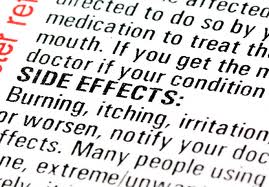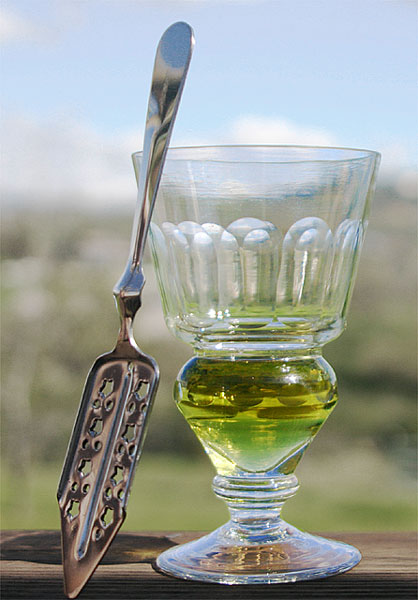As I mentioned in a previous post, I recently had a blood test to check my Imuran levels. The blood test is one of several offered by Prometheus Therapeutics and Diagnostics. In fact, they specialize in tests related to Crohn's, IBS and other digestive diseases. The test needed to be conducted before 11 am because the sample needed to be sent to San Diego for testing.
I was curious about this test and wanted to find out more. And what I discovered only reaffirmed my feelings about global, multi-national corporations and their quest for profits above all else.
Imuran is a registered trademark of Prometheus. And Prometheus is owned by Nestlé.
Yes, the same Nestlé that makes Swiss Miss, Perrier water, Oreos, Smarties, DiGiorno's pizza, Hot Pockets, Lean Cuisine, Gerber baby food, Purina dog and cat food, to name just a few. Although only 6% of their revenue comes from pharmaceutical products, it seems fitting that they develop tests for digestive problems that may, in part, be caused by their food products (if you go by the theory that Crohn's is caused by environmental factors, that is).
The diagnostic test they offer are rather extensive:
- Prometheus IBD sgi Diagnostic
- Prometheus Crohn's Prognostic
- Prometheus Celiac Serology
- Prometheus Celiac Genetics
- Prometheus TPMT Genetics
- Prometheus TPMT Enzyme
- Prometheus Thiopurine Metabolites
- Prometheus LactoType
- Prometheus Serum Infliximab/HACA Measurement
These tests range in price from $150 to over $800 a test. The accuracy of the prognostic tests have been challenged.
But there have been other chalenges as well. Prometheus sued Mayo Collaborative Services (a for-profit division of the Mayo Clinic) for patent infringement and the case went all the way to the Supreme Court. Apparently, Prometheus tried to patent the following diagnostic process:
1. Deliver medicine
2. Test the levels of medicine in the patient's blood
3. Decide to raise or lower the dose based on known thresholds of the drug
I'm not a scientist, but I learned about this process in grade school. It's called the "scientific method." Mayo Collaborative Services had been using Prometheus' services but then announced in 2004 that they would develop their own diagnostic test. Prometheus sued for patent infringement and the case languished in court for over seven years. In the case, pharmaceutical companies and drug manufacturers, of course, had sided with Prometheus. The case was decided on March 20, 2012 and the majority sided with Mayo Collaborative Services. The Supreme Court "concluded that Prometheus' process for monitoring a patient, and adjusting dosage as needed, was not patent-eligible."(1)
What does this mean for the average Crohn's patient? Probably not much. One would think that competition within the diagnostic industry would keep the costs low. But that is not the case as hospitals add their own fees and service charges to the tests anyway. One person on a Cohn's forum complained that a basic diagnostic test cost her over $1000, even though the charge from Prometheus was $270; the hospital had added $980.
This has only reinforced my opinion that the modern pharmaceutical industry is in no way interested in curing diseases. They want to maintain diseases so that they can maintain or increase profits. Caught in the middle are doctors who, generally, want what's best for their patients. They want to see an end to Crohn's.
But that would put some very big companies out of business.
And, as instances of autoimmune diseases are on the rise, this is a major cash cow for corporations like Nestlé. There is no incentive to find cures anymore. And the legal wrangling over patents and medicines only slow down the process for cures. Jonas Salk never patented his discovery of the polio vaccine in the 1950s but instead gave away the information for free so that others could make the vaccine and eradicate polio. According to Forbes, he missed out on what could have been a $7 billion windfall. Plus, patenting a medicine tends to raise the cost by about 25%.
Could he have done that today?
I have my doubts.
----
(1) Diane Bartz and James Vicini, "Top court rules against two diagnostic patents." Reuters. March 20, 2012. (http://www.reuters.com/article/2012/03/20/us-mayo-prometheus-patent-idUSBRE82J0NV20120320)









_.jpg)











